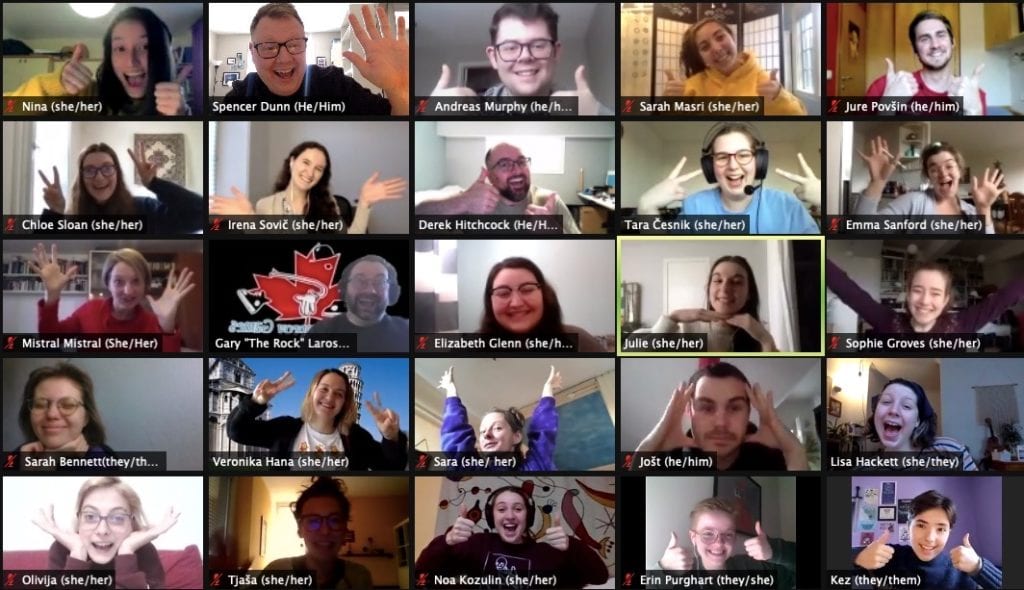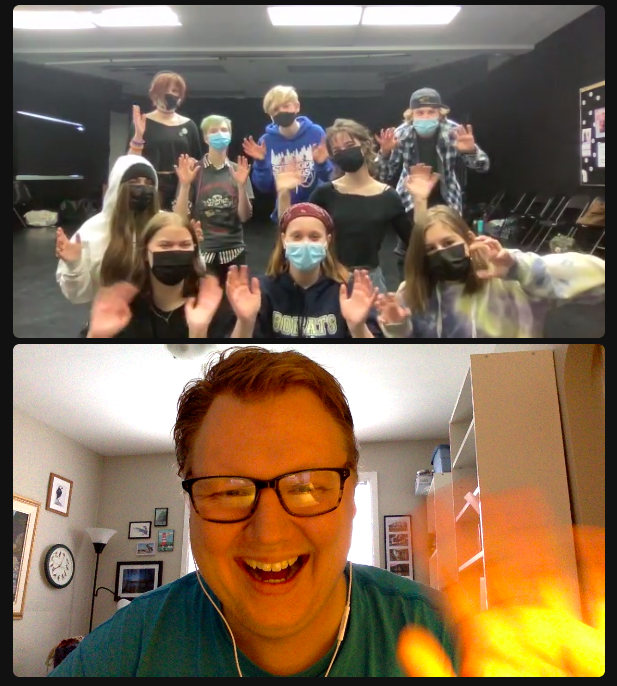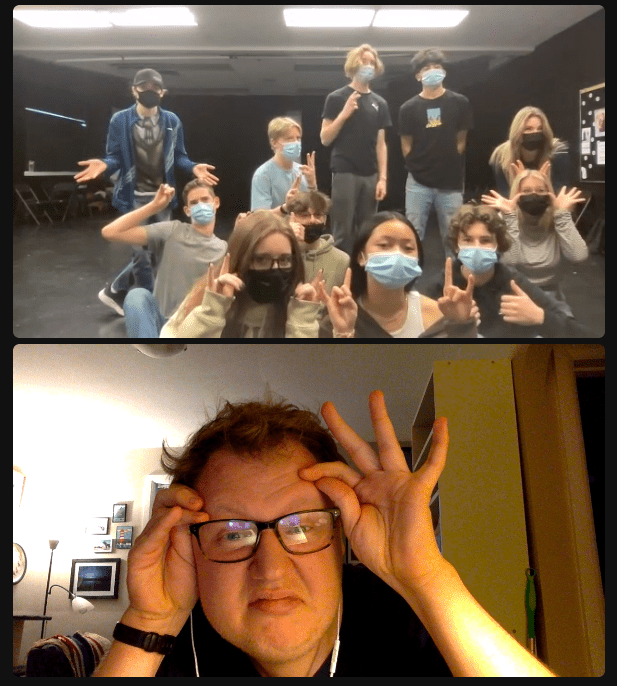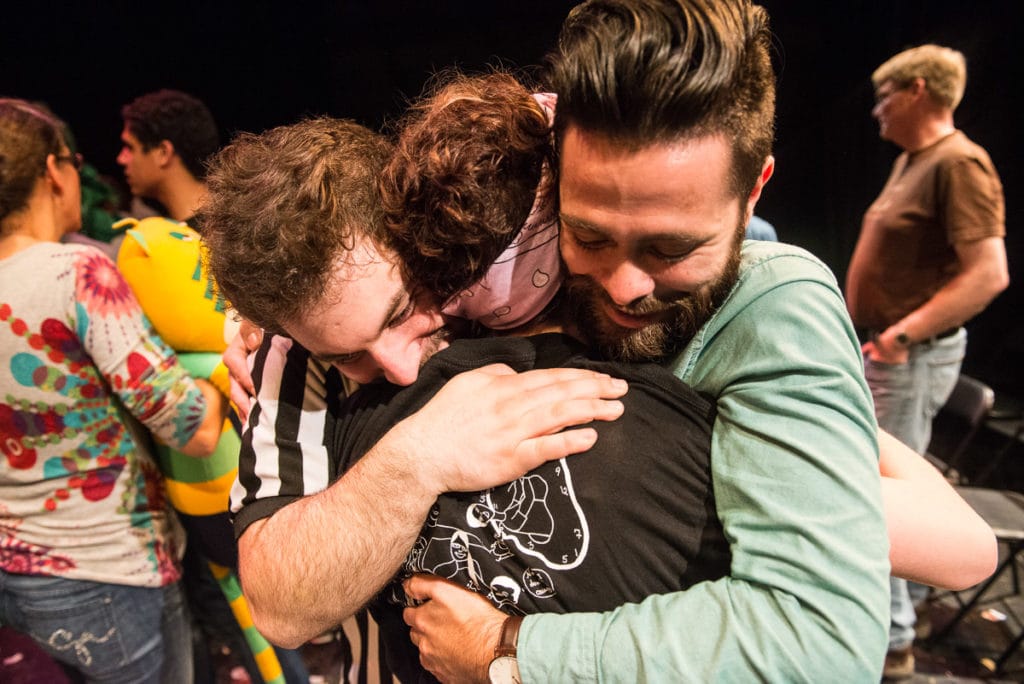Welcome to the Online or Hybrid CIG Model for 2021/22!
This page will walk you through everything you need to know for the season including deadlines and timelines, as well as guidelines for your submissions!
The online and hybrid model is largely based on a combination between the Online Wildcard (returning in 2022/23!) and the online model the CIG utilized in the 2020/2021 season. The idea in both of these models is to bring CIG programming and competition to teams who for whatever reason (distance, safety, etc.) cannot attend an in-person program!
This year especially the online or hybrid model will be used as a catch-all for teams in areas where in-person programming has to be cancelled or shifted because of COVID restrictions and safety.




Workshops
Every team in the online or hybrid program will receive a free one-hour workshop! These workshops will be delivered remotely by a CIG trainer. To schedule your workshop please contact Spencer Dunn at spencer@improv.ca. Workshops must all be delivered by Friday February 25th, 2022 so contact now to book your workshop!
Mid-Season Evaluations.
Every team is allowed to submit 8 minutes of footage (6 minutes for junior teams) for evaluation. Teams do not need to perform CIG events but are encouraged to do so. (See technical points below for information on how to submit)
These scenes will be adjudicated by CIG trainers and feedback will be given within 10 days of submission.
The deadline for midseason evaluations is March 31, 2022 but we encourage teams to submit earlier to avoid the bottleneck that happens during spring break.
Competitive Submissions
Competitive submissions are due on Friday April 22nd. Results will be announced on Monday May 2nd in time for the next round of Top Five Submissions (more info below). Top Five submissions will be due Friday May 13th and winners will be announced on the weekend of May 21st.
If you have ANY questions please reach out to our Program Manager, Spencer Dunn, at spencer@improv.ca

You may perform up to TWO scenes for submission for evaluation. If you wish to participate in midseason evaluations you may submit a video that includes your team performing two scenes for an adjudication. If you are recording on a platform such as Zoom or Google Meets, simply record the meeting using the recording function on those platforms and submit the video in that way. If you are performing in person you may record using a phone, a camera, or any video taking device. The most important thing is that we can see and hear you. The format in which you submit your mid-season is NOT necessarily the same format in which you will perform your competitive submission. For example: if your school board currently mandates no in-person rehearsals your mid-season recording will likely be on an online platform. If you move to being in person by April you may compete in the hybrid competition. In sum: the format you choose to submit your mid-season evaluation video does not necessarily need to be the same format in which you submit your final competitive video.
Here are a few more rules about the midseason evals
The hybrid and online tournaments are divided into four pools.
The four pools are as follows:
The pools in which you are competing will depend entirely on how your team is rehearsing/performing. This may absolutely change up to the date on which you decide to record your official submission. We will stand by this flexibility in the face of the pandemic because we want everyone to be able to participate.
We WILL be asking everyone at the beginning of March how they plan to record/perform so that we have an idea of who is in each pool. Those numbers help us determine how each pool will be structured BUT again, this is flexible.
Every team will compete against the other teams in their pool. A team of judges will be assigned to each pool and judge accordingly. The TOP FIVE teams from each pool will advance to finals (round two of submissions) and will be expected to submit another video for judging. The judges will be swapped for finals and new suggestions will be given. Teams may substitute members between tapings. The winners of finals will be announced one week after submissions are due.
There will be a champion for each pool.
The first round of competitive submissions will be due on Friday April 22nd
For teams in the hybrid pool(s) the scorecard remains the same.
For teams competing in then ONLINE format you’ll notice the following changes in the scorecard:
Don’t be a silly goose. Sign up and stay in the know!